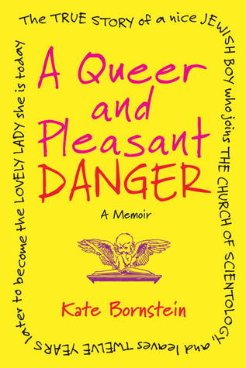Disney will never make a movie about my life story, and that’s a shame—I’d make a really cute animated creature. But I was born and raised to play the role of young hero boy. I spent my first fourteen years living in Interlaken, New Jersey. It’s an upper-middle-class island in the middle of Deal Lake, just one town inland from the summer seaside resort of Asbury Park in its glory days. My family was one of a handful of Jews who lived there. I was four and a half years old when I realized I wasn’t a boy, and therefore must be a girl. I still lived the life of a boy. People still saw me as a boy, and later as a man—and I never had the courage to correct them. Instead, I lied to everyone, telling them I was a boy. Day and night, I lied. That’s a lot of pressure on a little kid.
The Saturday Evening Post arrived each week, by mail. Norman Rockwell, craftsman of the American dream, painted most of the covers. I longed to be each and every one of those corn-fed midwestern freckle-faced Rockwell girls—engaging, grinning in the face of adversity, defiant, weeping with the loss of love, dependent on the men in her life. Rockwell girls are especially dependent on daddy. And they were blonde. Oh, how I wanted eyes the color of cornflowers and hair the color of fresh-picked corn.
Well, here’s a cover that Norman Rockwell would never have painted: my mother on the delivery table, knocked out from not only the anesthesia, but also the pitcher of martinis she’d drunk over the course of her six hours’ labor with me. I was born drunk and loving drugs. The first words I heard were, “Welcome to this world, honey. Welcome.” Twenty-four years later, the same doctor—Griff Grimm—would hold newborn Jessica and say those same words. Griff and my dad were resident physicians at Fitkin Memorial in Neptune, New Jersey—a small hospital serving a cluster of small seaside summer towns.
Living on the Jersey Shore, the Atlantic Ocean was our magic, and the boardwalk was our magic carpet. Summertime meant sharing that with the tourists—we all had summer jobs that depended on the tourists. In a summer town, the father-son bonding seasons are autumn, winter, and early spring.
My dad and I bonded over old-school pro wrestling—we shared that fandom. Dad had once been the Indiana State College Middleweight Wrestling Champion. He took me to the pro matches in Asbury Park’s Convention Hall.
“Remember, Albert,” he’d say to me, “it’s all an act. But there’s a lot of skill in making it look real.” I knew that already. I had a lot of skill in making myself look and act like a real boy.
My father was a doctor, so we could afford to sit ringside. He rarely stayed seated. Dad was up on his feet most of the time—as close to the ring as he could get—shaking his fist and bellowing at the bad guys, or at the referee for a bad call. That was his anger. He showed some of it at home, but ringside he really let go. My dad thought he saw me, his son, caught up in the bloodlust of the sport. Nah. It was plain old lust for me. I watched those matches shivering in sexual turn-on. Pre-match, the wrestlers would strut around the ring. One for one, the good guys always gave me a wink. They gave everyone a wink, but I took it personally. When they winked at me, I was a beautiful young girl and I longed to be caught up in their arms.
